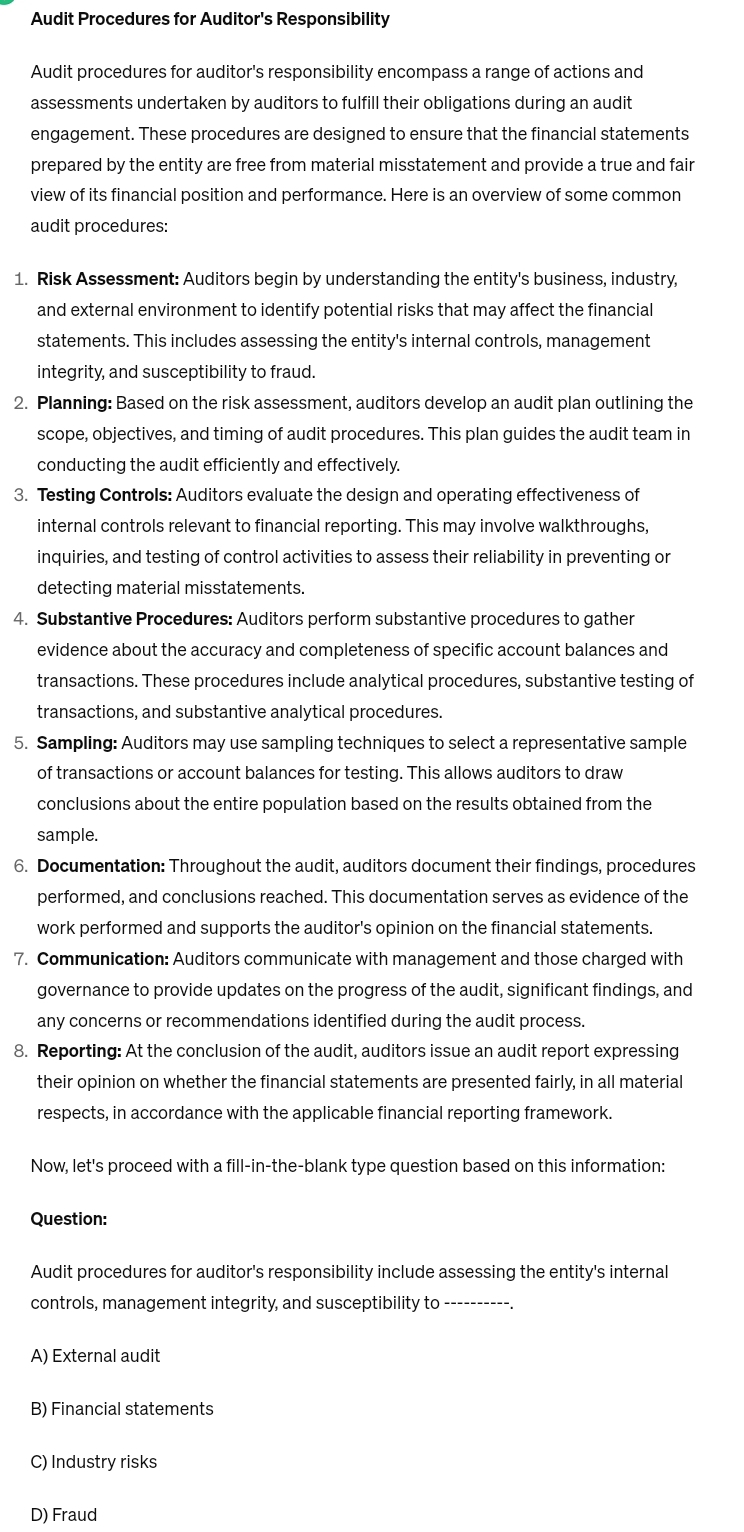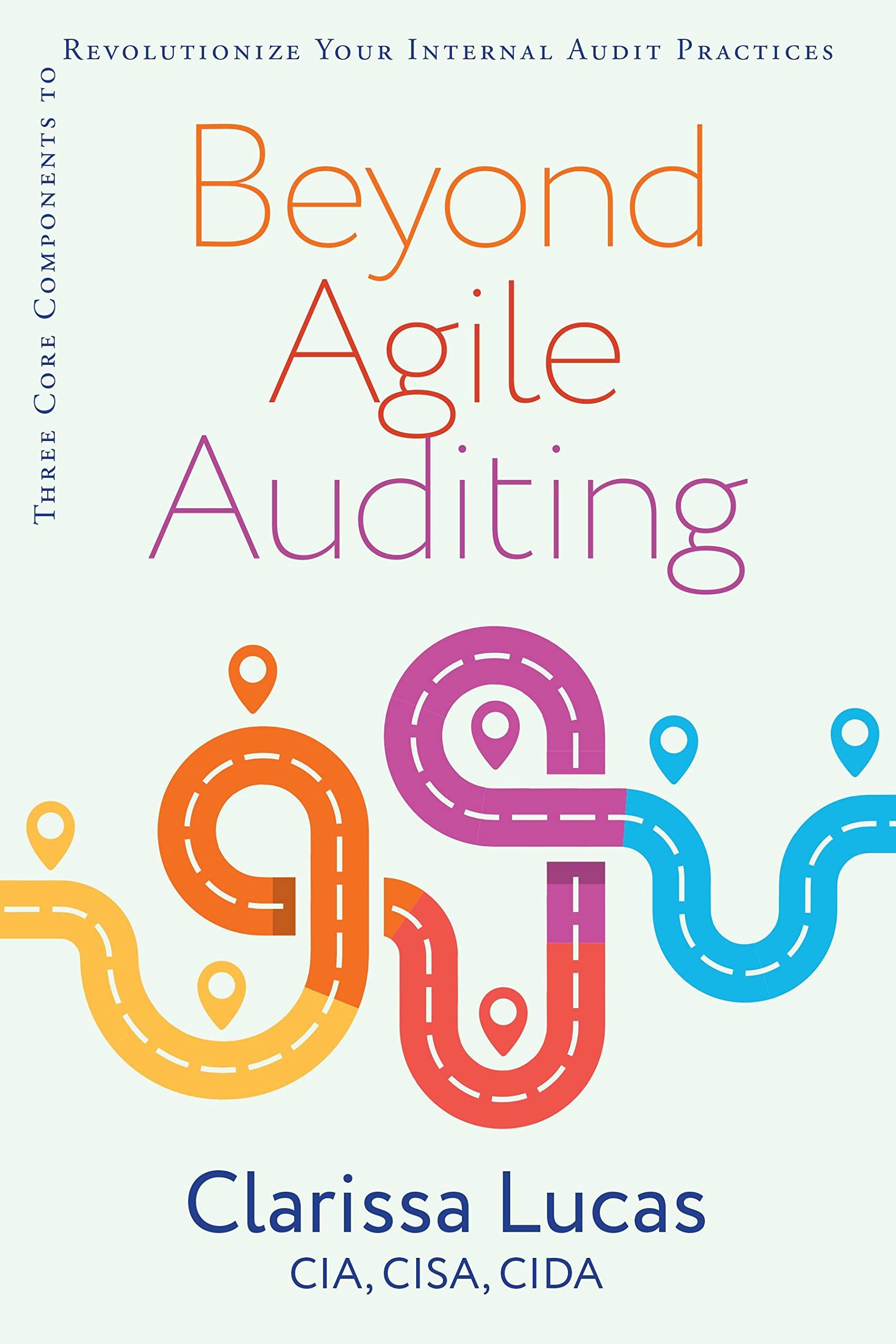Answered step by step
Verified Expert Solution
Question
1 Approved Answer
Audit Procedures for Auditor's Responsibility Audit procedures for auditor's responsibility encompass a range of actions and assessments undertaken by auditors to fulfill their obligations during
Audit Procedures for Auditor's Responsibility
Audit procedures for auditor's responsibility encompass a range of actions and assessments undertaken by auditors to fulfill their obligations during an audit engagement. These procedures are designed to ensure that the financial statements prepared by the entity are free from material misstatement and provide a true and fair view of its financial position and performance. Here is an overview of some common audit procedures:
Risk Assessment: Auditors begin by understanding the entity's business, industry, and external environment to identify potential risks that may affect the financial statements. This includes assessing the entity's internal controls, management integrity, and susceptibility to fraud.
Planning: Based on the risk assessment, auditors develop an audit plan outlining the scope, objectives, and timing of audit procedures. This plan guides the audit team in conducting the audit efficiently and effectively.
Testing Controls: Auditors evaluate the design and operating effectiveness of internal controls relevant to financial reporting. This may involve walkthroughs, inquiries, and testing of control activities to assess their reliability in preventing or detecting material misstatements.
Substantive Procedures: Auditors perform substantive procedures to gather evidence about the accuracy and completeness of specific account balances and transactions. These procedures include analytical procedures, substantive testing of transactions, and substantive analytical procedures.
Sampling: Auditors may use sampling techniques to select a representative sample of transactions or account balances for testing. This allows auditors to draw conclusions about the entire population based on the results obtained from the sample.
Documentation: Throughout the audit, auditors document their findings, procedures performed, and conclusions reached. This documentation serves as evidence of the work performed and supports the auditor's opinion on the financial statements.
Communication: Auditors communicate with management and those charged with governance to provide updates on the progress of the audit, significant findings, and any concerns or recommendations identified during the audit process.
Reporting: At the conclusion of the audit, auditors issue an audit report expressing their opinion on whether the financial statements are presented fairly, in all material respects, in accordance with the applicable financial reporting framework.
Now, let's proceed with a fillintheblank type question based on this information:
Question:
Audit procedures for auditor's responsibility include assessing the entity's internal controls, management integrity, and susceptibility to
A External audit
B Financial statements
C Industry risks
D Fraud

Step by Step Solution
There are 3 Steps involved in it
Step: 1

Get Instant Access to Expert-Tailored Solutions
See step-by-step solutions with expert insights and AI powered tools for academic success
Step: 2

Step: 3

Ace Your Homework with AI
Get the answers you need in no time with our AI-driven, step-by-step assistance
Get Started


